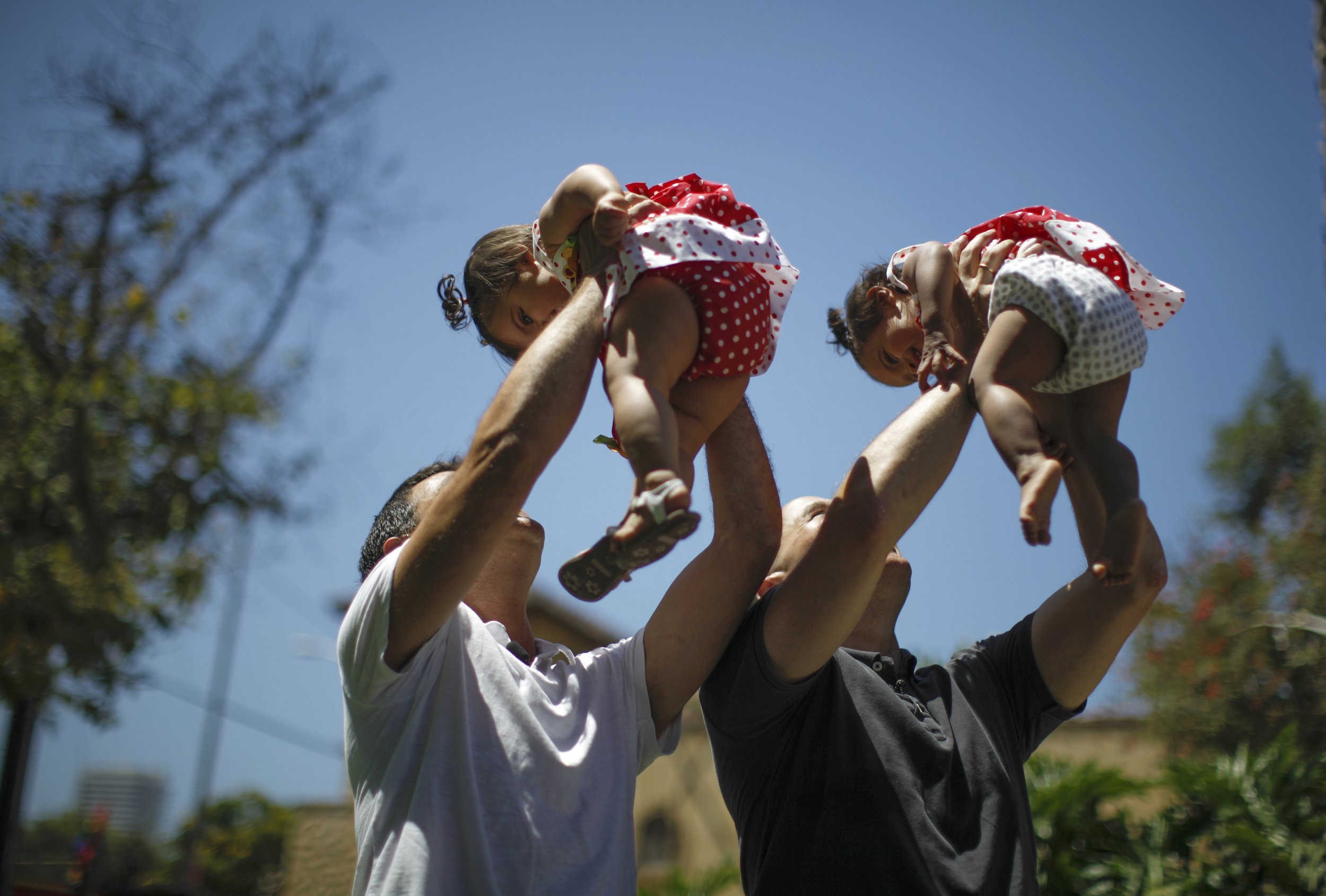
Male same sex couples may soon be able to have children genetically related to both partners.
Scientists from the University of Cambridge and the Weizmann Institute in Israel made the discovery while conducting research into how egg and sperm cells are created.
Dr Jacob Hanna, of the Weizmann Institute, acknowledged that it is possible to use skin stem cells from two adults of the same gender to make human egg and sperm cells.
"This is very exciting biology," says Dr Hanna. "We have succeeded in the first and most important step of the process, where we have reached the progenitor cell state for sperm and egg. We have not yet achieved mature sperm and eggs. So we are now focusing on completing the second half of this process."
The study used human embryonic skin stem cells to create primordial germ cells - known as PGCs. These are normally created naturally when an egg cell divides after it is fertilised by a sperm. Some cells which cluster to form the foetus are 'reset' to become stem cells, which have the potential to develop into any cell within the body, and a small number become PGCs, which then can be made into either sperm or egg cells.
"We are working hard to make the entire process complete. Once that is achieved this may become useful for any individual with fertility problems."
Dr Hanna says he is highly optimistic that the second stage of the research will be successful as the process has worked when these cells were injected into mice testes and ovaries. Although Dr Hanna says there is still a long way to go before lesbian couples might be able to also have biological babies.
He adds that while the process is especially feasible for stem cells from two males, it would be more difficult using two women's due to the added complexity of having to add a Y chromosome.
"We can lose a chromosome but not add one," explains Dr Hanna.
Ron Poole-Dayan, executive director of not-for-profit organisation Men Having Babies, which promotes and helps gay men become biological parents, welcomes the news.
"We definitely see potential for this research to help in legal, psychological, financial and logistical terms for gay men wanting to become biological parents," he says. Mr Poole-Dayan has 14-year-old twins with his husband who were conceived using his partner's sister's eggs.
He observes that currently babies within a same-sex partnership will inevitably have questions about their origin and that there are sometimes legal implications as to which parent is the official guardian. He says the possibility of both parents being genetically linked to the child would be advantageous when it comes to answering these questions and establishing parental rights.
However, Paul Tully general secretary at the Society for the Protection of Unborn Children, says his organisation is strongly opposed to the engineering of adult stem cells to create children.
"We believe the processing of humans in laboratories turns children into manufactured products and commodities," he says. "This is not the way in which we should be producing our children."
Dr Hanna acknowledges that there are 'very serious ethical and safety issues to be considered' should the process become possible in the future.
Mr Tully adds: "We think that children should be given the opportunity to grow up in the best possible environment, and the evidence is very clear about the differences in all sorts of outcomes - health, education, long term happiness, between children who are brought up by their biological parents and children raised in a homosexual relationship."
Yet Professor Susan Golombok, director of the centre for family research at the University of Cambridge and author of Modern Families: Parents and children in new family forms, says there is significant research which shows children brought up in same sex families fare much better than Mr Tully suggests.
"The studies show these children are actually doing very well and have very good relationships with their gay fathers," she says. "One explanation is that they are all very wanted children. Fathers who adopt are very committed to being parents and very involved with their children."
Uncommon Knowledge
Newsweek is committed to challenging conventional wisdom and finding connections in the search for common ground.
Newsweek is committed to challenging conventional wisdom and finding connections in the search for common ground.
About the writer
To read how Newsweek uses AI as a newsroom tool, Click here.








